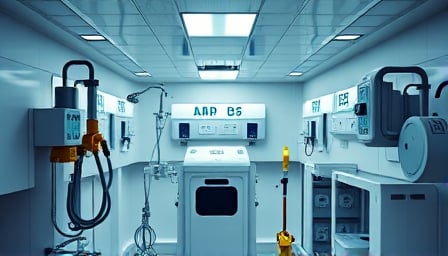IHH Healthcare Bhd: Navigating Financial Challenges and Strategic Expansion
In the first quarter of its financial year ending December 31, 2025, IHH Healthcare Bhd, a leading global healthcare investment holding company, reported a significant drop in net profit. The company’s net profit fell to RM514 million from RM768 million in the same period last year, marking a 33% decrease. This decline is primarily attributed to exceptional accounting adjustments under MFRS129 and the absence of a deferred tax credit that was present in the previous year. Despite this, revenue saw an increase, rising to RM6.29 billion from RM5.96 billion, driven by gains in the hospital and healthcare segments.
The drop in net profit, as reported by sources such as The Edge Malaysia and KLSE Screener, highlights the impact of accounting rules and the absence of certain financial benefits that were previously available. However, the revenue growth indicates a positive trend in the company’s core operations, suggesting resilience in its service offerings across its seven segments: Singapore, Malaysia, India, North Asia, Acibadem Holdings, IMU Health, and PLife REIT.
Amidst these financial challenges, IHH Healthcare remains committed to its strategic growth initiatives. The company has recently expanded its footprint with the acquisitions of Timberland Medical Centre in Sarawak and Island Hospital in Penang in 2024. These moves are part of a broader strategy to meet the increasing demand for quality healthcare services both locally and across the region. IHH’s proactive approach to expansion underscores its confidence in the long-term growth prospects of the healthcare sector.
The broader market sentiment, as reflected in the performance of Bursa Malaysia, has been cautious, with the FTSE Bursa Malaysia KLCI experiencing fluctuations. Despite this, IHH’s focus on strategic acquisitions and expansion plans positions it well to capitalize on future opportunities in the healthcare industry.
In addition to its expansion efforts, IHH Healthcare is also engaging in discussions around the implementation of the diagnostic-related group (DRG) payment model in local private hospitals. The company’s CEO, Dr. Prem Kumar Nair, has expressed concerns about the suitability of this model for private hospitals, advocating for further studies before its adoption. This cautious stance reflects IHH’s commitment to ensuring sustainable and effective healthcare delivery models.
As IHH Healthcare navigates these financial and operational challenges, its strategic initiatives and focus on quality healthcare services are likely to play a crucial role in its future success. The company’s ability to adapt to changing market conditions and regulatory environments will be key to maintaining its position as a leading player in the global healthcare sector.
